As part of the flushing process, I have decided to turn to creative writing. Unfortunately, my previous attempts at fiction writing weren’t exactly Shakespeare, and are almost embarrassing, with the exception of this lovely satirical piece that I wrote for an AH Publishing contest. That story worked because it turned into satire, a type of creative writing where I believe I have shown some talent. Drama, not so much, at least not yet.
The most glaring flaw that I have in my dramatic writing is this weird over reliance on dialogue. It’s almost like I lost the ability to simply write “they exchanged pleasantries,” instead of creating a tedious scene where the reader has to first read nothing of importance before getting to the actual conversation. That’s not fun to read, and even more tedious to write.
But that’s just the most obvious problem with my writing. There are many others, all of which have combined to make every serious drama fiction that I write come out quite a bit worse than it was in my head. This happens to everyone, of course, and I’m aware that I’ll get better with time. My non-fiction writing certainly got better over the years. All we need is a little practice.
They say that the number one way to get better at writing is to write. I’ll make sure you suffer through a great deal of my original work in time. However, I’ve always believed that polishing up the work of others that I’ve felt didn’t quite stick the landing could be a good intermediate exercise, and the final result will be undoubtedly of higher quality.
About a week ago, I stumbled upon the below video by “Jason Fuhrman,” who criticized the prologue to Brandon Sanderson’s “The Way Of Kings.” Criticism is easy, but Fuhrman took the time to rewrite the prologue. I feel the result is vastly superior.
Backing up for a second. “The Way Of Kings” is a novel is the opening part of Brandon Sanderson’s Stormlight Archive series. I read the first two books more than five years ago, then dropped the series early on in the third book. It ended up being everything that I didn’t like in fantasy.
However, we’re not here to do a review, we’re here to do exactly what Jason Fuhrman did. I will largely accept the story as is, and try to make improvements to the writing. Luckily, I’ve forgotten what Fuhrman wrote, so I won’t have his improved version clouding my mind.
Below we see Brandon’s original version of the prologue to The Way Of Kings. Underneath his will be mine, followed by Fuhrman’s.
BRANDON SANDERSON’S VERSION
Kalak rounded a rocky stone ridge and stumbled to a stop before the body of a dying thunderclast. The enormous stone beast lay on its side, riblike protrusions from its chest broken and cracked. The monstrosity was vaguely skeletal in shape, with unnaturally long limbs that sprouted from granite shoulders. The eyes were deep red spots on the arrowhead face, as if created by a fire burning deep within the stone. They faded.
Even after all these centuries, seeing a thunderclast up close made Kalak shiver. The beast’s hand was as long as a man was tall. He’d been killed by hands like those before, and it hadn’t been pleasant.
Of course, dying rarely was.
He rounded the creature, picking his way more carefully across the battlefield. The plain was a place of misshapen rock and stone, natural pillars rising around him, bodies littering the ground. Few plants lived here. The stone ridges and mounds bore numerous scars. Some were shattered, blasted-out sections where Surgebinders had fought. Less frequently, he passed cracked, oddly shaped hollows where thunderclasts had ripped themselves free of the stone to join the fray.
Many of the bodies around him were human; many were not. Blood mixed. Red. Orange. Violet. Though none of the bodies around him stirred, an indistinct haze of sounds hung in the air. Moans of pain, cries of grief. They did not seem like the sounds of victory. Smoke curled from the occasional patches of growth or heaps of burning corpses. Even some sections of rock smoldered. The Dustbringers had done their work well.
But I survived, Kalak thought, hand to breast as he hastened to the meeting place. I actually survived this time.
That was dangerous. When he died, he was sent back, no choice. When he survived the Desolation, he was supposed to go back as well. Back to that place that he dreaded. Back to that place of pain and fire. What if he just decided . . . not to go?
Perilous thoughts, perhaps traitorous thoughts. He hastened on his way.
The place of meeting was in the shadow of a large rock formation, a spire rising into the sky. As always, the ten of them had decided upon it before the battle. The survivors would make their way here. Oddly, only one of the others was waiting for him. Jezrien. Had the other eight all died? It was possible. The battle had been so furious this time, one of the worst. The enemy was growing increasingly tenacious.
But no. Kalak frowned as he stepped up to the base of the spire. Seven magnificent swords stood proudly here, driven point-first into the stone ground. Each was a masterly work of art, flowing in design, inscribed with glyphs and patterns. He recognized each one. If their masters had died, the Blades would have vanished.
These Blades were weapons of power beyond even Shardblades. These were unique. Precious. Jezrien stood outside the ring of swords, looking eastward.
“Jezrien?”
The figure in white and blue glanced toward him. Even after all these centuries, Jezrien looked young, like a man barely into his thirtieth year. His short black beard was neatly trimmed, though his once-fine clothing was scorched and stained with blood. He folded his arms behind his back as he turned to Kalak.
“What is this, Jezrien?” Kalak asked. “Where are the others?”
“Departed.” Jezrien’s voice was calm, deep, regal. Though he hadn’t worn a crown in centuries, his royal manner lingered. He always seemed to know what to do. “You might call it a miracle. Only one of us died this time.”
“Talenel,” Kalak said. His was the only Blade unaccounted for.
“Yes. He died holding that passage by the northern waterway.”
Kalak nodded. Taln had a tendency to choose seemingly hopeless fights and win them. He also had a tendency to die in the process. He would be back now, in the place where they went between Desolations. The place of nightmares.
Kalak found himself shaking. When had he become so weak? “Jezrien, I can’t return this time.” Kalak whispered the words, stepping up and gripping the other man’s arm. “I can’t.”
Kalak felt something within him break at the admission. How long had it been? Centuries, perhaps millennia, of torture. It was so hard to keep track. Those fires, those hooks, digging into his flesh anew each day. Searing the skin off his arm, then burning the fat, then driving to the bone. He could smell it. Almighty, he could smell it!
“Leave your sword,” Jezrien said.
“What?”
Jezrien nodded to the ring of weapons. “I was chosen to wait for you. We weren’t certain if you had survived. A . . . a decision has been made. It is time for the Oathpact to end.”
Kalak felt a sharp stab of horror. “What will that do?”
“Ishar believes that so long as there is one of us still bound to the Oath-pact, it may be enough. There is a chance we might end the cycle of Desolations.”
Kalak looked into the immortal king’s eyes. Black smoke rose from a small patch to their left. Groans of the dying haunted them from behind. There, in Jezrien’s eyes, Kalak saw anguish and grief. Perhaps even cowardice. This was a man hanging from a cliff by a thread.
Almighty above, Kalak thought. You’re broken too, aren’t you? They all were.
Kalak turned and walked to the side, where a low ridge overlooked part of the battlefield.
There were so many corpses, and among them walked the living. Men in primitive wraps, carrying spears topped by bronze heads. Juxtaposed between them were others in gleaming plate armor. One group walked past, four men in their ragged tanned skins or shoddy leather joining a powerful figure in beautiful silver plate, amazingly intricate. Such a contrast. Jezrien stepped up beside him.
“They see us as divinities,” Kalak whispered. “They rely upon us, Jezrien. We’re all that they have.”
“They have the Radiants. That will be enough.”
Kalak shook his head. “He will not remain bound by this. The enemy. He will find a way around it. You know he will.”
“Perhaps.” The king of Heralds offered no further explanation.
“And Taln?” Kalak asked. The flesh burning. The fires. The pain over and over and over . . .
“Better that one man should suffer than ten,” Jezrien whispered. He seemed so cold. Like a shadow caused by heat and light falling on someone honorable and true, casting this black imitation behind.
Jezrien walked back to the ring of swords. His own Blade formed in his hands, appearing from mist, wet with condensation. “It has been decided, Kalak. We will go our ways, and we will not seek out one another. Our Blades must be left. The Oathpact ends now.” He lifted his sword and rammed it into the stone with the other seven.
Jezrien hesitated, looking at the sword, then bowed his head and turned away. As if ashamed. “We chose this burden willingly. Well, we can choose to drop it if we wish.”
“What do we tell the people, Jezrien?” Kalak asked. “What will they say of this day?”
“It’s simple,” Jezrien said, walking away. “We tell them that they finally won. It’s an easy enough lie. Who knows? Maybe it will turn out to be true.”
Kalak watched Jezrien depart across the burned landscape. Finally, he summoned his own Blade and slammed it into the stone beside the other eight. He turned and walked in the direction opposite from Jezrien.
And yet, he could not help glancing back at the ring of swords and the single open spot. The place where the tenth sword should have gone.
The one of them who was lost. The one they had abandoned.
Forgive us, Kalak thought, then left.
MY VERSION
Even after all these centuries, seeing a thunderclast up close made Kalak shiver. He looked for the stone beast’s hands, long as a man was tall. He’d been killed by hands like those before, and it hadn’t been pleasant.
Dying rarely was.
He waited as the creature’s red eyes, lit from a fire seeming within, faded to nothing, then continued on to the stone plain battlefield. He saw first the bodies around him, man and creature alike. Blood mixed. Red. Orange. A haze of sounds hung in the air. Moans of pain, cries of grief.
The sounds of victory.
As he moved forward he saw the shattered, blasted-out sections of where Surgebinders had fought. Less frequently, he passed cracked, oddly shaped hollows where thunderclasts had ripped themselves free of the stone to join the fray.
Everywhere around him wisps of smoke curled from patches of growth or heaps of burning corpses. Even rock smoldered. The Dustbringers had done their work well.
But I survived, Kalak thought, hand to breast as he hastened to the meeting place. I actually survived this time.
That was dangerous. When he survived the Desolation, he was supposed to go back. Back to that place that he dreaded. Back to that place of pain and fire. What if he just decided not to go?
Perilous thoughts, perhaps traitorous thoughts. He hastened on his way.
The place of meeting was in the shadow of a large rock formation, a spire rising into the sky. As always, the ten of them had decided the survivors would make their way here, yet only one waited for him, Jezrien.
Kalak frowned as he stepped up to the base of the spire. Seven magnificent swords driven point-first into the stone ground. Each a masterwork of art, flowing in design, inscribed with glyphs and patterns. Weapons of power beyond even Shardblades.
He recognized each one. If their masters had died, the Blades would have vanished.
Jezrien stood outside the ring of swords, looking eastward.
“Jezrien?”
Even after all these centuries, Jezrien looked young, like a man barely into his thirtieth year. His short black beard was neatly trimmed, though his once-fine blue and white clothing was scorched and stained with blood.
“What is this, Jezrien?” Kalak asked. “Where are the others?”
“Departed.” Jezrien hadn’t worn a crown in centuries, but his voice remained calm, deep, regal. “You might call it a miracle. Only one of us died this time.”
“Talenel,” Kalak said. His was the only Blade unaccounted for.
“Yes. He died holding that passage by the northern waterway.”
Kalak nodded. Taln had a tendency to choose seemingly hopeless fights and win. He also had a tendency to die in the process. He would be back now, in the nightmarish place where they went between Desolations.
Kalak found himself shaking. When had he become so weak? “Jezrien, I can’t return this time.” Kalak whispered the words, stepping up and gripping the other man’s arm. “I can’t.”
Kalak felt something within him break at the admission. How long had it been? Centuries, perhaps millennia, of torture. It was so hard to keep track. Those fires, those hooks, digging into his flesh anew each day. Searing the skin off his arm, then burning the fat, then driving to the bone. He could smell it even now.
“Leave your sword,” Jezrien said.
“What?”
Jezrien nodded to the ring of weapons. “I was chosen to wait for you, in case you survived. A . . . a decision has been made. It is time for the Oathpact to end.”
Kalak felt a sharp stab of horror. “What will that do?”
“Ishar believes that so long as there is one of us still bound to the Oath-pact, it may be enough. There is a chance we might end the cycle of Desolations.”
In Jezrien’s eyes Kalak saw anguish and grief. Perhaps even cowardice.
Almighty above, Kalak thought. You’re broken too, aren’t you? They all were.
Kalak walked to the side, where a low ridge overlooked part of the battlefield.
The living were an eclectic mash of men. Some walked in primitive wraps, carrying wooden spears. Others wore gleaming plate armor, or intricate silver plate. All around them lay the dead.
Jezrien stepped up beside him.
“They see us as divinities,” Kalak whispered. “They rely upon us, Jezrien. We’re all that they have.”
“They have the Radiants. That will be enough.”
Kalak shook his head. “The enemy will not remain bound by this. He will find a way around it. You know he will.”
“Perhaps.” The King Of Heralds offered no further explanation.
“And Taln?” Kalak asked. The flesh burning. The fires. The pain over and over and over . . .
“Better that one man should suffer than ten,” Jezrien whispered. He seemed cold, like a dark imitation of his honorable and true self.
Jezrien walked back to the ring of swords. His own Blade formed in his hands, appearing from mist, wet with condensation. “It has been decided, Kalak. We will go our ways, and we will not seek out one another. Our Blades must be left. The Oathpact ends now.” He rammed the sword into the stone with the other seven.
Jezrien hesitated, looking at the sword, then bowed his head and turned away, as if ashamed. “We chose this burden willingly. We can choose to drop it if we wish.”
“What do we tell the people, Jezrien?” Kalak asked. “What will they say of this day?”
“It’s simple,” Jezrien said, walking away. “We tell them that they finally won. It’s an easy enough lie. Who knows? Maybe it will turn out to be true.”
Kalak watched Jezrien depart across the burned landscape. Finally, he summoned his own Blade and slammed it into the stone beside the other eight, then walked in the direction opposite Jezrien.
He could not help glancing back at the ring of swords and the single open spot. The place where the tenth sword should have gone. The one of them who was lost. The one they had abandoned.
Forgive us, Kalak thought, then left.
FUHRMAN’S VERSION.
Even after all these centuries, the sight of a thunderclast was the touch of cold steel to Kalak’s flesh. But to his fortune, this one was dying.
The enormous stone beast lay on its side, riblike protrusions from its chest broken and cracked. Vaguely skeletal in shape, the creature’s long limbs sprouted from granite shoulders, ending in hands as long as a man was tall. Kalak had been killed by hands like those before, and it hadn’t been pleasant.
Of course, dying rarely was.
The thunderclast’s eyes, red embers in an arrowhead skull, faded. Kalak moved on, picking his way carefully across the battlefield. Misshapen rock and stone dominated the plain, natural pillars rising around him, bodies littering the ground. Wisps of plant life struggled among ridges and mounds riddled with scars. Shattered and blasted-out sections showed where Surgebinders had battled, and cracked, oddly shaped hollows were the mark of thunderclasts ripping themselves free to join the fray.
The dead were human and beast alike. Blood mixed. Red. Orange. Violet. Though none of the bodies stirred, an indistinct haze of sounds hung in the air. Moans of pain, cries of grief. Not the sounds of victory. Smoke curled from heaps of burning corpses. Even the rock itself smoldered. The Dustbringers had done their work well.
But I survived. Hand to breast, Kalak hastened to the meeting place. I actually survived.
Surviving was dangerous, no choice but to be sent back after death. When he survived the Desolation, he was required to go back as well. Back to that place he dreaded. Back to that place of pain and fire. What if he just decided . . . not to go?
Perilous thoughts. Perhaps traitorous thoughts. He hurried on.
The place of meeting was in the shadow of a large rock formation, a spire rising into the sky. As always, the ten of them had decided upon it before the battle. The survivors would make their way here. Oddly, only one of the others was waiting for him. Jezrien. Had the other eight all died? It was possible. The battle had been so furious this time, one of the worst. The enemy was growing increasingly tenacious.
But no. Kalak frowned as he stepped up to the base of the spire. Seven magnificent swords stood proudly here, driven point-first into the stone ground. Glyphs and patterns adorned their blades, which flowed with razor perfection to hilts made for godly hands. He recognized each one. If their masters had died, the Blades would have vanished.
These Blades were unique. Precious. Weapons of Power beyond even Shardblades. Just outside the ring of swords, looking eastward, mused Jeziren.
“Jezrien?”
The figure in white and blue turned to face him. Hundreds of years had done nothing to age him. A short black beard accentuated his sculpted jaw, anchoring a complexion of a man barely in his thirtieth year. He folded his arms behind his back, exposing his once-fine clothing scorched and stained with blood.
“What is this, Jezrien? Where are the others?”
“Departed.” Jezrien’s voice was calm, deep, regal. Remnants of a time when a crown had burdened his brow. “You might call it a miracle. Only one of us died this time.”
“Talenel,” Kalak said. His was the only Blade unaccounted for.
“He died holding the passage by the northern waterway.”
Kalak nodded. Taln had a tendency to choose seemingly hopeless fights and win them. He also had a tendency to die in the process. He would be back now, in the place where they went between Desolations. The place of nightmares.
Kalak found himself shaking. When had he become so weak? He gripped Jezrien’s arm. “I can’t return this time.” The words were a whisper. “I can’t.”
Kalak felt something break within him at the admission. How long had it been? Torture he could endure no longer. Those fires, those hooks, digging into his flesh anew each day. Searing the skin off his arm, then burning the fat, then driving to the bone. He could smell it. Almighty, he could smell it.
“Leave your sword,” Jezrien said.
“What?”
Jezrien nodded to the ring of weapons. “I was chosen to wait for you. We weren’t certain if you had survived. A . . . decision has been made. It is time for the Oathpact to end.”
Horror stabbed Kalak. “What will that accomplish?”
“Ishar believes that so long as there is one of us still bound to the Oathpact, it may be enough. There is a chance we might end the cycle of Desolations.”
Kalak looked into the immortal king’s eyes, into Jezrien’s eyes. Black smoke rose from their left. Groans of the dying haunted them from behind. There, in Jezrien’s eyes, Kalak saw anguish and grief. Perhaps even cowardice. This was a man hanging from a cliff by a thread.
Kalak looked to the tumultuous sky. Almighty above. You’re broken too, aren’t you?
They all were.
Kalak walked away from Jezrien, to where a low ridge overlooked part of the battlefield.
There were so many corpses. Piled, entangled, charred. They weren’t all dead, however. Men in primitive wraps, hefting spears topped with bronze heads walked among them, as did others armored in gleaming plate. But one stood out from all the rest, a figure in some of the most beautiful armor Kalak had ever seen, decorated with intricate details. Such contrast.
Jezrien joined his side.
“They see us as divinities,” Kalak said. “They rely upon us, Jezrien. We’re all they have.”
“They have the Radiants. That will be enough.”
Kalak shook his head. “He will not remain bound by this. The enemy. He will find a way around it. You know he will.”
“Perhaps,” the king of Heralds said, simply.
“And Taln?” Kalak asked. The flesh burning. The fires. The endless pain.
“Better that one man should suffer than ten,” Jezrien said. His words were cold as shadow.
Jezrien returned to the ring of swords. His own Blade formed in his hands, appearing from mist, wet with condensation. “It has been decided, Kalak. We will part ways, never to seek one another again. Our Blades must be left. The Oathpact ends now.” He raised his sword and rammed it into the stone with the other seven.
Jezrien hesitated, looking at the sword, then bowed his head and turned away, as if ashamed. “We chose this burden willingly. We can choose to drop it if we wish.”
“What do we tell the people? What will they tell of this day?”
“It’s simple,” Jezrien said. “ We tell them they finally won. An easy enough lie. Who knows? Maybe it will turn out to be true.” Then he left Kalak and the swords.
Kalak watched Jezrien depart across the burned landscape. When Jezrien was out of sight, he summoned his own Blade and slammed it into the stone beside the other eight. He left the swords, in the opposite direction of Jezrien.
And yet, he could not help glancing back at the ring of swords, at the single open spot. The place where the tenth sword should have gone.
The one of them who was lost. The one they had abandoned.
Forgive us.
It’s interesting to see the wordcount for the three versions. Sanderson’s comes in at 1,296 words, Fuhrman’s at 1,190, and mine at just 1,035. I think Fuhrman’s version is very faithful to Sanderson’s, just with most of the fat cut off. Mine is a bit more to the point, perhaps cutting out some things that were truly important.
Even with that, I would have cut more if it wasn’t a prologue. A prologue, especially for a fantasy series, may be setting up important things with every seemingly innocuous line. I tried keeping as much unique detail in my version as possible, but it’s possible that I snipped something important.
Anyway, I wasn’t sold on doing this exercise, but now that I have I’m glad that I did. It was much more difficult than I anticipated. It also made me appreciate Brandon Sanderson’s writing more. I still think that it’s very sloppy and unfocused, but I initially over-edited the work, and had to keep cross-referencing his version to add back some of the worldbuilding details. That’s definitely a weakness of mine, and the early paragraphs could definitely weave the setting exposition more deftly.
I think that Fuhrman’s version is probably the best, and certainly has the best opening. I really like the small additions he made to the story, and it feels more focused than Sanderson’s original version. I do think that even his version keeps a lot of the unnecessary details that Sanderson seems so enamored with.
Criticism is appreciated.

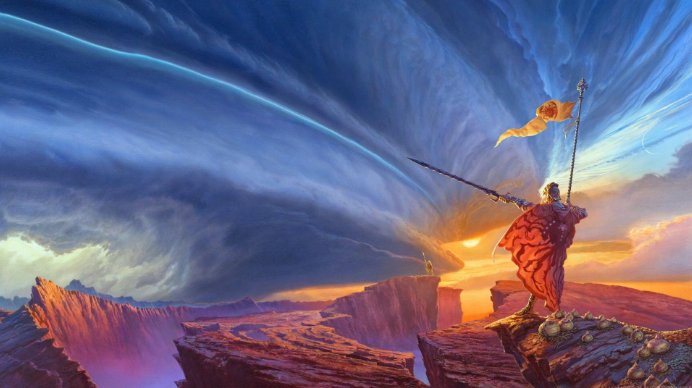
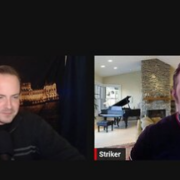

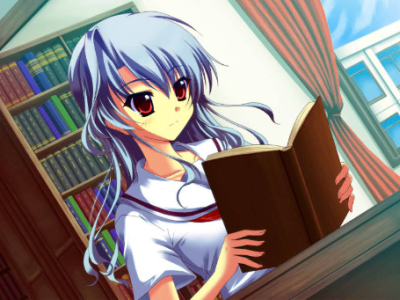
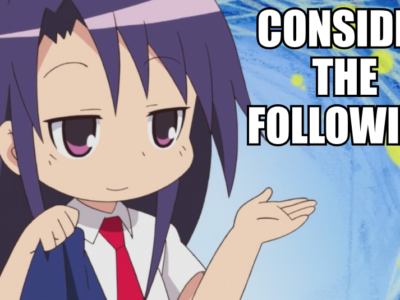


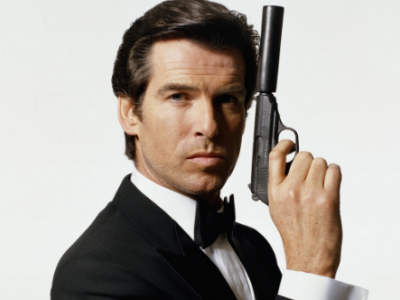
I didn’t know about this. Thanks.
I’m not here for this…
Cool. So leave. This is a blog.
Exercise your writing on this short story contest for Raw Egg Nationalist then as well. Pulp fiction, high adventure, 5k word limit, end of February deadline:
https://twitter.com/Babygravy9/status/1732119060865748992
Nice find. I’ll definitely write something up for that.
Mmmkay, I am a huge TDC fan, but the criticism of Striker & Warren not achieving political change doesn’t make sense when contrasted with doing fantasy novel creative writing exercises.
I don’t understand why fantasy protagonists cannot be named ‘Bob’ or ‘Becky’. All of these weird names are (a) distracting and (b) hard to keep track of. I know it’s been around for a long time, but sometimes the names are so weird and pointlessly exotic, I walk away rather than persist. Everyone cannot be Jack Vance and come up with weird names that *somehow* seem to fit (like ‘Cugel the Clever’).
The best ‘fantasy’ novels I read recently is ‘Let Them Look West’ by Marty Philips and ‘From Her Eyes A Doctrine’ by Ash Donaldson. No elves. No magic swords. Just a different view of reality down the road.
I could not agree more. I realized when writing my (poor) fantasy prologue, the first two parts published on this site, that I truly despise coming up with fantasy names. I also don’t like wizards, elves, magic swords, and the like, although magic horror/antagonism has its positives. Looking at ancient fables, fantasy should be looked at with more seriousness. It isn’t, because its infested with “weird shit for nerds,” as opposed to people using a fantastical setting to convey a deeper meaning about our world.
Jews could be here, murmured the sorcerer into the oven.
I’ve always contemplated finishing writing a novel myself. Unfortunately, it would have to be a pure work of passion these days, especially for people like ourselves. I’m still working on mine. A sort of fantasy one man against the world with the help of his hard won over wolf friend… Very derivative of novels like white fang lol, but I think once it’s done and perfected, It might leave some mark.
Either way, it doesn’t matter much. Artists almost never get any recognition until they are dead. At least now in jew world. During the renaissance they did, but kikes do not care about innovation, only power. That said, if you are able to write well enough to appeal to the common man, like Steven King, you might be able to strike a deal. Fuck that though, true art is passion. And the best things in life are free. Kikes can get fucked.
Hi,
I wrote a long comment about this post – it took a while and when I hit enter – it vanished, never to appear again. I’ll attempt to summarize what I wrote as it won’t help either of us to rebuild that wall of text.
I whole heartedly support your desire to start writing fiction. I’m of the opinion that is partly why we – as white people – have been so thoroughly trounced by these scheming jews. I went to animation school and have spent my career in “the industry”. I’ve seen the effects of all this talmudic influence up close.
That said, the above exercise is not the way to go about it. I have published two novels and you’re welcome to listen to them as audiobooks on youtube, or read them for free online. I’m glad Black Pigeon did Day of the Rope – though I haven’t made the time to read it yet. I own all 4 of Covington’s books in perfect condition – which I got off a guy in our pool party. I was super impressed when Antelope Hill started publishing – though I suspicious of their investment capital – but maybe a crypto whale and if so – I love how they’re investing.
Personally – I’m working on a racing video game, but that’s not so relevant to your efforts. I love your site and have been a near daily visitor for a while – months at least.
So, while I applaud your ambition – rewriting someone else’s work is a cringe move. Creative writing is far more about the “creative” part. Yes, the writing style is crucial too, but much more important are clarity and brevity – I think Stephen King is credited with faultless spelling and grammar – the rest of us mere mortals have to work at it. In the earlier draft I’d also made comparisons about songwriting and illustration, the differences between skill and talent, etc. Point being – Character, World and Plot development need to work with the thematic writing style. The process of developing a writing style is like learning the technical aspects of music or illustration. Also – it has absolutely nothing to do with whether you have anything interesting to write about. The great struggle of the artist is to harness his passions to the demanding discipline of the medium.
I’d be happy to chat about this more, feel free to email, I left the link to the novels below.
Hope all is well
JC
Being Sincere is always better than Being Serious – especially when writing.
ahhh – I see – it was the link that made it vanish…
Ashley Fox Dot Ninja – is the site – thx 1488